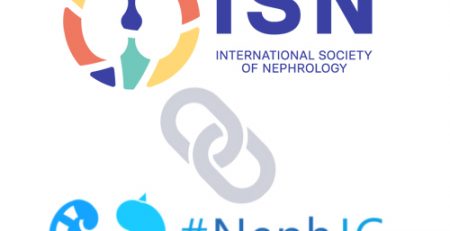Statement of Concern – Political Declaration, Third UN High Level Meeting on NCDs
The International Society of Nephrology is very concerned about the current state of negotiations on the Political Declaration for the third United Nations High-Level Meeting on Noncommunicable Diseases (UN HLM on NCDs). Kidney disease – the 11th leading cause of death globally – is a silent epidemic affecting over 850 million people worldwide which poses a significant health care challenge for governments, particularly in low and middle income countries.
Yet it has been neglected in global NCD discussions to date. The international community cannot afford to miss another crucial opportunity to take targeted action on kidney disease as an integral part of the global NCD policy response.
We therefore urge Member States to strengthen the text and agree, by consensus, on a strong document that acknowledges the global burden from kidney disease: with over 850.000 million people world-wide affected (roughly double the number of people who live with diabetes (422 million) and 20 times more than the prevalence of cancer worldwide (42 million) or people living with AIDS/HIV (36.7 million), kidney disease is one of the most common diseases worldwide which requires urgent action and cannot be left behind by member states in the development and implementation of national health strategies.
An outcome document that ignores the burden of kidney disease would mean that many million patients worldwide living with NCDs were left behind.
Kidney disease: the silent epidemic
- Over 850 million people worldwide have some form of kidney disease
- The prevalence of chronic kidney diseases worldwide is 10.4% among men and 11.8% among women
- Currently around 3 million people are on dialysis – the majority of them in high income countries illustrating significant inequity in access to kidney failure therapy world-wide, with most in lower income countries unable to access it.
- Acute kidney injury (AKI), experienced by 13.3 million patients each year, may resolve or lead to chronic kidney diseases or kidney failure in the future.
- Between 2.3 and 7.1 million people with end-stage kidney disease die prematurely because of lack of access to dialysis and transplantation, with the majority of these deaths occurring in countries where infrastructure and resources are insufficient and catastrophic payments are required
- Overall it is estimated that between 5 and 10 million people die prematurely related to kidney disease a number rivalling that of 3 of the 4 high profile NCDs.
Additional information:
The hidden epidemic: Worldwide, over 850 million people suffer from kidney diseases
The global burden of kidney disease and the sustainable development goals
2018 UN High Level meeting on NCDs: A call to action on kidney disease












